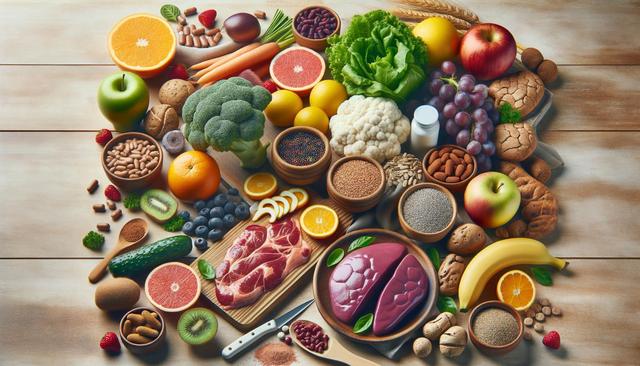
Useful Remedies That May Help Detox a Fatty Liver Naturally
Understanding Fatty Liver and Dietary Influence
Fatty liver, also known as hepatic steatosis, occurs when excess fat builds up in the liver. While it can develop without symptoms, over time it may lead to liver inflammation and more serious conditions. One of the most effective ways to support liver health is through dietary adjustments. Identifying the Best Diet for Fatty Liver Reversal involves focusing on nutrient-rich, anti-inflammatory foods that support liver function and reduce fat accumulation. These include whole grains, lean proteins, fruits, vegetables, and healthy fats. Avoiding processed foods, refined sugars, and alcohol is also crucial. The right food choices not only help reduce liver fat but also improve overall metabolic health, which plays a key role in managing this condition.
Top Natural Foods That Support Liver Health
When exploring the Best Foods for Fatty Liver, several options stand out for their potential to aid in liver detoxification and fat reduction. Natural ingredients with antioxidant and anti-inflammatory properties can be particularly supportive. Some commonly used foods include:
- Leafy greens like spinach and kale, which may help lower liver fat levels.
- Fatty fish rich in omega-3 fatty acids, such as salmon or sardines, known for reducing liver inflammation.
- Berries, especially blueberries and cranberries, which are high in antioxidants that may protect liver cells.
- Green tea, which contains catechins that may support liver enzyme function.
- Garlic, which may help activate liver enzymes and aid in flushing out toxins.
Incorporating these foods regularly into meals may contribute positively to liver health and be part of a broader strategy for How to Cleanse Fatty Liver.
Everyday Habits That May Aid Liver Detox
Beyond diet, certain lifestyle habits can further support natural liver detoxification. These habits can enhance the benefits of a healthy diet and promote long-term liver wellness. Some of these habits include:
- Staying hydrated by drinking plenty of water throughout the day.
- Engaging in regular physical activity to help reduce overall body fat and improve insulin sensitivity.
- Getting enough sleep, as rest is essential for cellular repair and detoxification processes.
- Practicing mindful eating to avoid overeating and reduce the burden on the liver.
These habits, when combined with the Best Diet for Fatty Liver Reversal, may contribute to gradual improvements in liver function and overall well-being.
Foods and Ingredients to Limit or Avoid
While adding beneficial foods is important, it’s equally vital to limit or avoid items that contribute to liver fat accumulation. Understanding How to Cleanse Fatty Liver also includes identifying harmful dietary components. Common foods to reduce or eliminate include:
- Refined carbohydrates such as white bread, pastries, and sugary cereals.
- Processed meats and high-fat cuts of red meat, which may increase liver fat.
- Sugar-laden beverages like sodas and energy drinks.
- Alcohol, which can significantly contribute to liver damage and fat buildup.
Replacing these with natural whole foods can help reduce the liver’s workload and support its ability to heal. Long-term dietary mindfulness is a key component of the Best Diet for Fatty Liver Reversal.
Planning a Liver-Friendly Meal Routine
Creating a structured meal plan that includes the Best Foods for Fatty Liver can make it easier to maintain healthy habits. A typical day might look like this:
- Breakfast: Oatmeal topped with berries and chia seeds, paired with green tea.
- Lunch: Grilled salmon with quinoa and steamed broccoli.
- Snack: A handful of walnuts or a small apple.
- Dinner: Stir-fried tofu with mixed vegetables and brown rice.
Meal preparation and planning ahead can help avoid impulsive eating and ensure that each meal contributes to liver support. Over time, consistency in eating habits can make a meaningful difference for those looking into How to Cleanse Fatty Liver naturally and sustainably.
Conclusion: Supporting Liver Health Naturally
Managing fatty liver through diet and lifestyle is a practical, long-term approach that many find beneficial. By focusing on the Best Foods for Fatty Liver and incorporating health-conscious routines, individuals can support their liver’s natural detoxification process. While change takes time, consistent efforts in choosing nutrient-dense foods, staying active, and avoiding harmful substances can contribute to better liver health. Anyone considering dietary changes should consult a healthcare professional, especially when managing an existing health condition. With thoughtful planning and balanced nutrition, it’s possible to create an environment where the liver can function more efficiently and maintain overall wellness.


